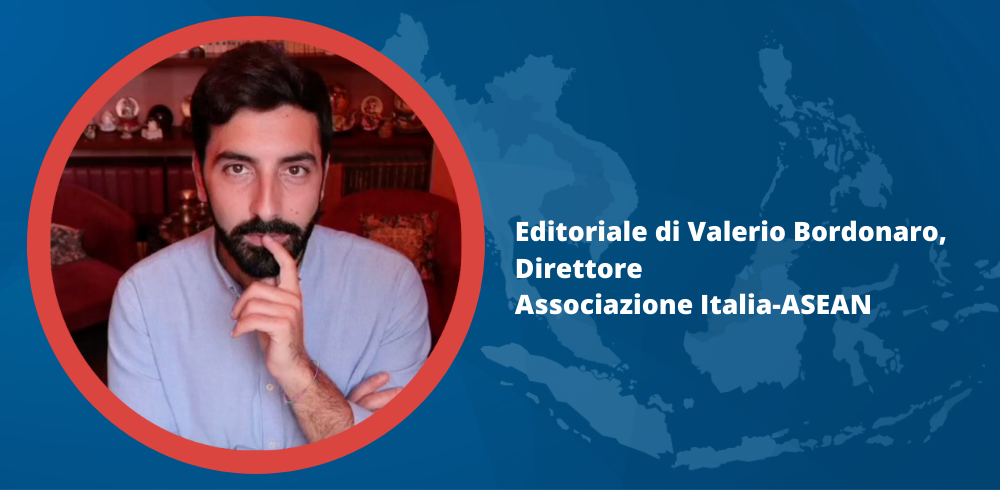A debate has arisen within the bloc of South East Asian countries on the Association's decision-making mechanisms
Editorial by Valerio Bordonaro
Director Associazione Italia-ASEAN
That of consensus "is the fundamental principle of ASEAN for mutually beneficial cooperation and to ensure the continuity of the Association in fully integrating the bloc, so as to realise the building of the ASEAN community". It is the so-called 'ASEAN way' characterised by neutrality and pacifism that we have talked about several times. And which Cambodian Chun Sovannarith also talks about. That is the key, in his view, to the 'extraordinary success' of the Association of Southeast Asian Nations in making the region 'stable, peaceful, inclusive, sustainable, resilient and prosperous for over five decades'. For 55 years, ASEAN has been making its decisions based on the consensus model, which is cited six times in the 55 articles of the association's Charter. Through this shared decision-making process, an alternative to the majority principle, a mechanism of integration and continuous consultation between all member states has thus been produced. Lately, however, an idea has been circulating that, if applied, could make some changes to this historic unity of purpose. On the model of the 'ASEAN Minus X' (a formula that allowed some states of the group not to implement tariff and trade policies adopted in common), there are those who imagine the creation of a 'majority with super-vote' model aimed at improving the institutional effectiveness of the association in cases where consensus is not reached on regional or international issues of common interest. A position on which it may be worth opening a debate, but according to Chun Sovannarith, 'one must ask whether or not any new model would fit the current context, considering that the consensus principle already works effectively for ASEAN's unity in diversity, under the motto of one vision, one identity and one community'. In this sense, it can also be said that this idea 'may not be consistent with the very nature of ASEAN', he adds, expressing a position that matches that of the Cambodian government. Based on the articles of the association's Charter, Chun continues, 'the legal personality of ASEAN must take precedence over political decision-making by far, as the leaders' decision-making is legally bound by the principle of consensus'. Opinions aside, it should be considered that to change the decision-making model and amend the Charter would require the consensus of all ASEAN states.






